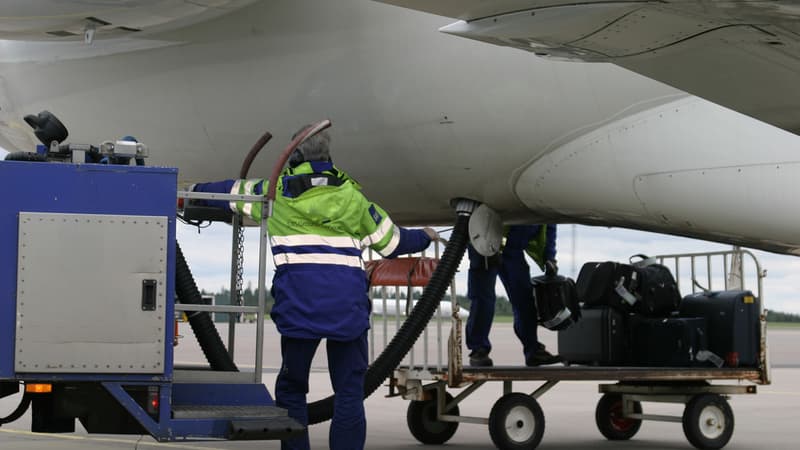Will the flight programs end up being reduced by themselves without the DGAC giving instructions to the companies in the face of strikes by air traffic controllers? The supply of kerosene to Ile-de-France and its airports by Normandy “is becoming critical”, the Ministry of Energy Transition said Thursday that it had “issued a requisition order” regarding the strikers, which was not notified. “in this stage”. to the employees of the refinery, which was closed last weekend.
The TotalEnergies refinery in Normandy, the largest in France, is in the same pipelines as the CIM (Compagnie industrielle Maritime) refinery in Le Havre and the neighboring Esso-ExxonMobil refinery in Port-Jérôme-Gravenchon, which supply Paris airports. Fuel shipments from the Esso refinery are also blocked, according to the CGT. The General Directorate of Civil Aviation has been warning airlines for several days that the kerosene reserves at the Paris-Charles-de-Gaulle and Paris-Orly airports are “under stress”, urging them to take their precautions.
“Kerosene stocks at Paris Charles-de-Gaulle are currently under pressure. To avoid any operational problems, all flights to Paris-CDG are called upon to carry as much fuel as possible from their airport of origin, within the capacities operating limits”. of the device, warns the DGAC in a message sent on March 17.
A transportation problem but out of stock
During a press conference to present the financial results, the general director of Esso France, Charles Amyot, considered that the problem is one of logistics and not of stock. An analysis behind which is also located Patrice Geoffron, director of the Center for Geopolitics of Energy and Raw Materials (CGEMP) who recalls that the current tension is not related to the production of kerosene but to its transportation:
For the CGEMP expert, the situation could become particularly problematic: “A plane that would come from another part of Europe or that would have crossed the Atlantic and would not find anything to refuel in Roissy or Orly would be blocked at these airport aprons. So we can clearly see the logistical problems that may arise.”
Patrick Geoffron compares the current situation to an episode dating back to 2010 during which the DGAC had sent out similar notifications, “the available data suggested there was only 24 or 48 hours of stock available”: “There have been requisitions and c This is the problem of the current period a requisition order has been taken elsewhere and has not been implemented given the day of the demonstration today but if the tensions were to be confirmed we could go for requisitions to release the kerosene at least temporarily by restarting the pipeline . .”
The social movement of air traffic controllers is the real danger
Former Air France pilot Jean Serrat believes that the supply problems “have nothing to do with social movements.” “There have been technical problems that have made it difficult to refuel for a few months. In addition, many companies have instructions that consist of refueling when the plane is abroad so as not to embarrass yourself in Orly or Charles de Gaulle. Economically, we have also often imported fuel from the Middle East.” In addition to concerns for independence regarding the quantities of fuel available at French airports, the objective may therefore be to refuel with kerosene sold at a lower price. lower than in France.
According to BFMTV’s aeronautical consultancy, the real danger to the proper functioning of French airports and more specifically Parisian airports is the social movement of air traffic controllers. “The flight restrictions sent by the DGAC are not linked to fuel problems but to social movements followed by air traffic controllers, he insists. If French air traffic controllers are on strike, it is not France that is detained but practically all of Europe.” “
Source: BFM TV


